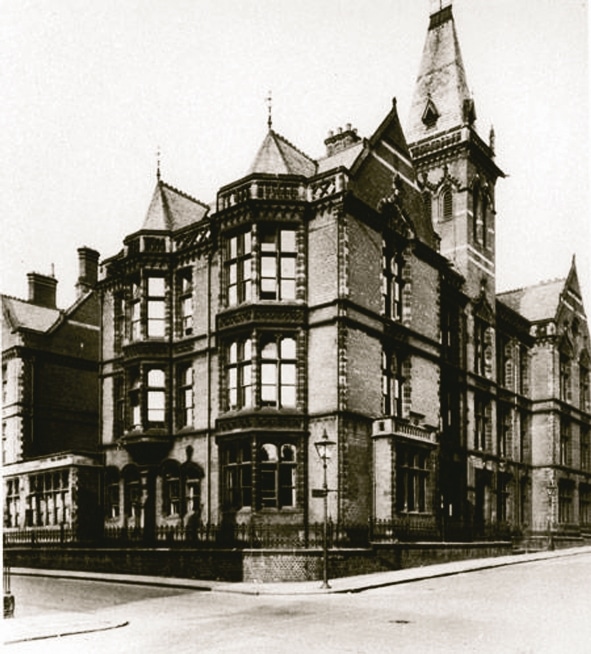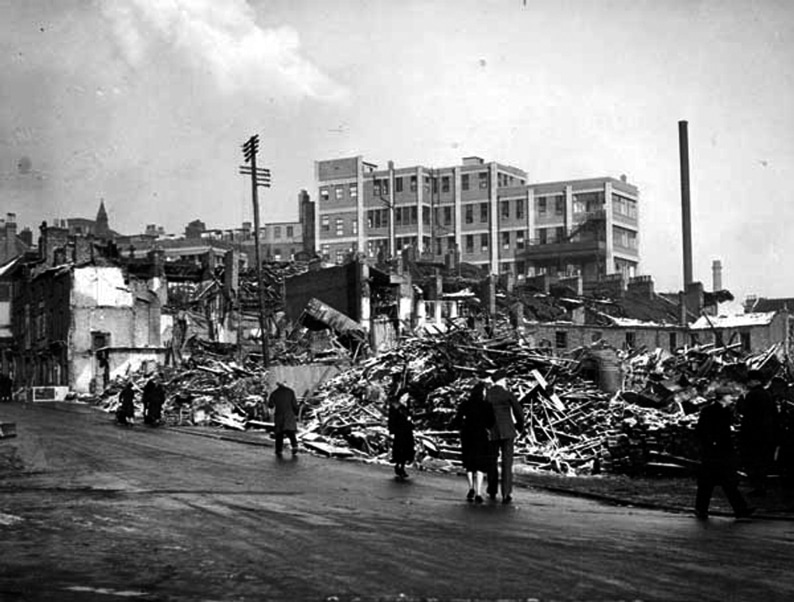This weekend marks the 75th anniversary of the Sheffield Blitz – a devastating event that impacted the lives of everyone living in the city at the time.
I’m personally fascinated by the history of our company, which is now approaching its centenary, and it’s truly inspiring to look back on our activity during the war years. I’m so proud that we were able to play our part in ensuring life remained as normal as possible during the Blitz, by providing our services to our contributors and Sheffield’s voluntary hospitals.
As we prepare to remember the events of 12th, 13th and 15th December 1940, I’d like to share the story of our hospitals and how Westfield Health continued to operate during the bombings.
Back to the beginning
We started life back in 1919 as the Sheffield Consultative and Advisory Hospitals Council, before becoming The Sheffield Hospitals Council. Initially, we were renamed Westfield Contributory Health Scheme in 1974.
We initially formed to help the city’s four self-financing hospitals: The Royal Hospital, The Royal Infirmary, The Children’s Hospital and The Jessop Hospital for Women – all of which were desperately short of money after the First World War.

In 1921, we launched the Penny in the Pound scheme to provide working people with free hospital treatment in return for a weekly contribution of a penny in every pound they earned. This ensured our local hospitals received a regular income, while our members were guaranteed access to healthcare.
Keep calm and carry on
Even when the Second World War broke out in 1939, our Penny in the Pound scheme continued to operate and our key services, including Auxiliary services, The Convalescent Fund and The Motor Ambulance Transport Service, were effectively and efficiently maintained.
As the prospect of an enemy attack grew, Westfield Health implemented a plan of action called War Emergency Measures, which was intended to help hospitals meet the needs of the ordinary sick and injured while, at the same time, preparing them to deal with an emergency situation.
Over the three nights of the Sheffield Blitz, nearly 450 high explosive bombs, land mines and incendiaries were dropped on the city, costing 693 lives and injuring 1,500 people.
German air raids struck a total of 78,000 homes and 40,000 people were made homeless. The voluntary hospitals were put under tremendous strain with a heavy stream of casualties. The Jessop Hospital for Women was severely damaged in the bombings and Sheffield Royal Hospital was also hit.

We can only imagine what it must have been like for the residents of Sheffield during those dreadful nights in December 1940. But despite everything, our members contributed an impressive £226,002 to the scheme during that year and we paid a record sum of £200,311 to the voluntary hospitals – some of which was used to construct a new laundry boiler house and maternity block at the Jessop Hospital.
Thank you
We’re really proud that we were able to stand firm and contribute to maintaining vital hospital services during the war. In true Westfield Health spirit, our company remained operational during the devastation of the Blitz, showing the great commitment and dedication of our employees in such terrible times.
I’d like to pay tribute to our loyal members, and their families, who continued to pay their contributions during the war and who are sadly no longer with us. And the debt we owe those who sacrificed their lives for their country, both in civilian occupations and the armed forces, will never be forgotten.
Westfield Health has evolved beyond recognition over the last century, but we remain true to our roots and continue to provide the hardworking people of Britain with access to healthcare, while supporting the NHS and medically related charities with much needed funding wherever we can.
Want to know more?
You can read much more about how the Blitz and Second World War affected Sheffield, our hospitals and our policyholders in a book by our Marketing Research and Development Executive Louise Henniker – Westfield Health through the War Years 1939-1945.
Graham Moore is our Chairman.